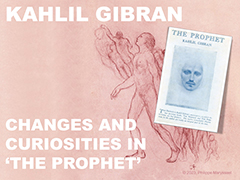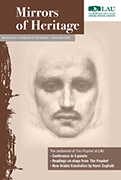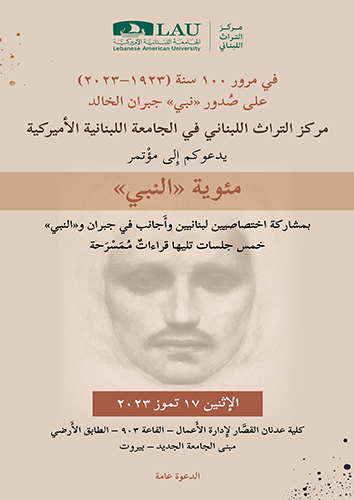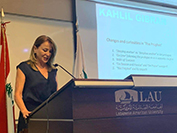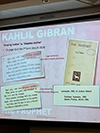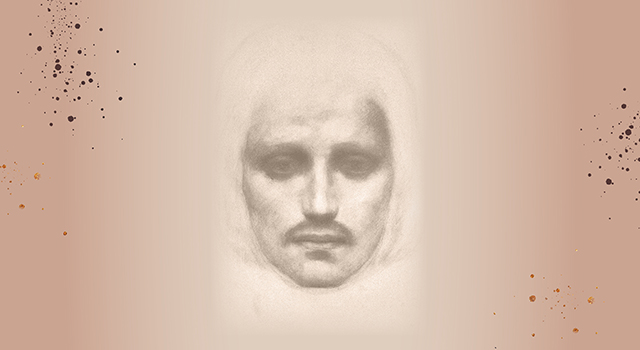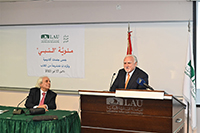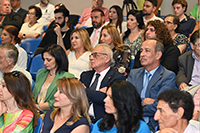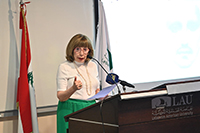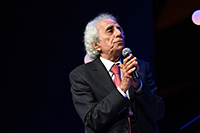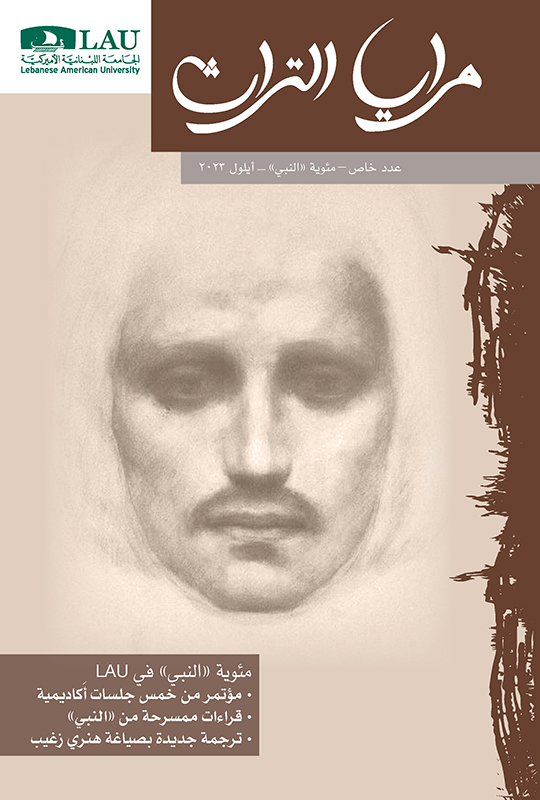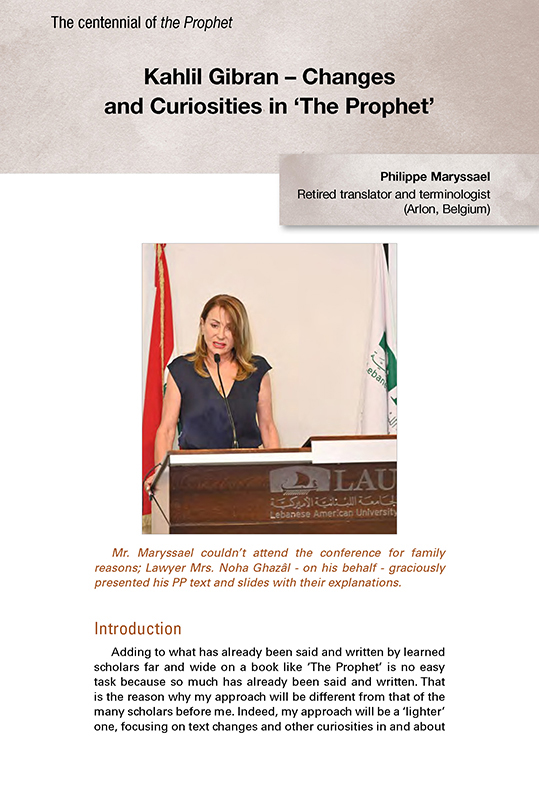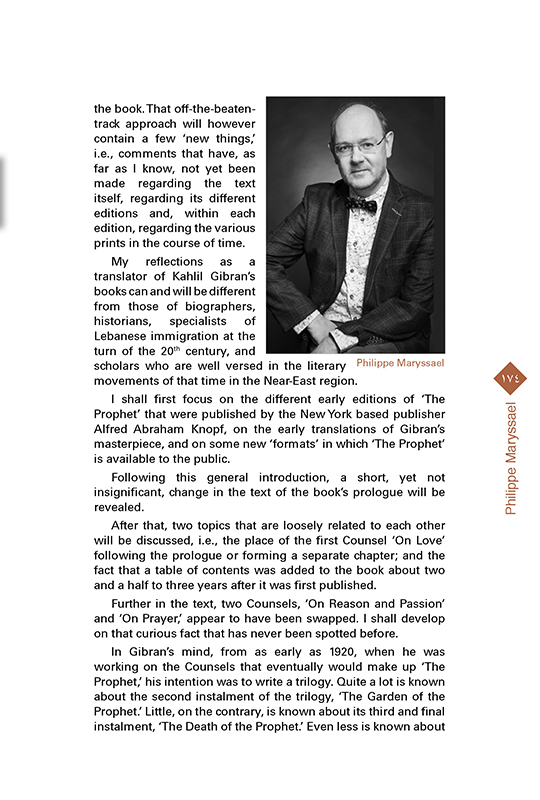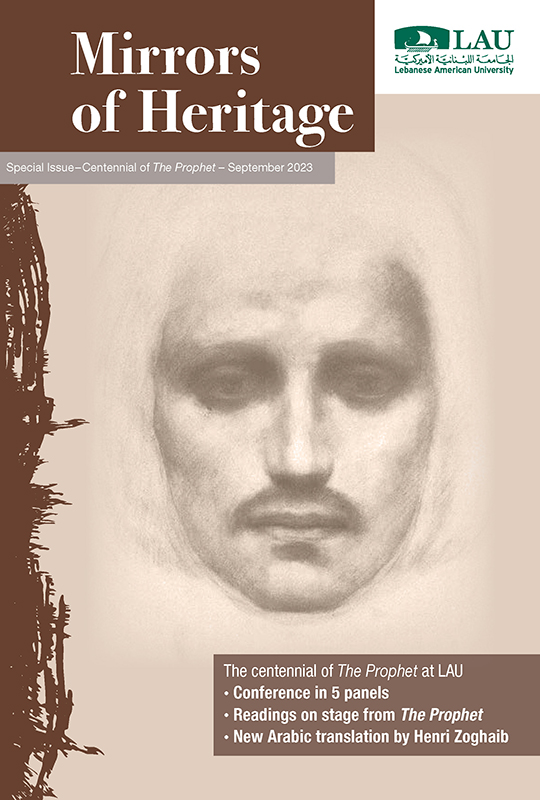Beyrouth - International Conference on Kahlil Gibran's 'The Prophet'
Conférence internationale sur le thème du 100e anniversaire du Prophète de Khalil Gibran dans les locaux de la Lebanese American University à Beyrouth le lundi 17 juillet 2023.
La présentation est accompagnée d'un essai sur les variations dans le texte du Prophète, intitulé Kahlil Gibran – Changes and Curiosities in ‘The Prophet’.
Présentation PowerPoint (ppsx)
Présentation (pdf)
Programme de la conférence (pdf)
Actes de la conférence de Beyrouth (pdf)
Où ? Lebanese American University (LAU), Center for Lebanese Heritage, Beyrouth, Liban
Quand ? Le lundi 17 juillet 2023
Beyrouth - 100e anniversaire du Prophète de Khalil Gibran le 17 juillet 2023
présentation
Pour des raisons familiales impérieuses, il ne m'a pas été possible de me rendre à Beyrouth. Aussi a-t-il été convenu avec M. Henri Zoghaib, le responsable du Center for Lebanese Heritage et l'organisateur et coordinateur de la conférence, que ma présentation serait donnée par Mme Noha Ghazâl, avocate, qui m'a adressé le message suivant :
Dear Mr. Maryssael
Mr. Henri Zoghaib, the responsible for the Gibran conference at LAU, has forwarded to me your mutual correspondence this morning. I mean to congratulate you for this very detailed text along with its slides, to clearly expose the differences between the several prints of “The Prophet”. As for myself, I enjoyed reading your work and I’ll be glad to expose it on podium Monday morning at 11:30 (Beirut time), and I’m positive that the audience will appreciate the work you meticulously prepared. Hoping to see you in Lebanon at another occasion, I wish you a fruitful day.
Mrs. Noha Ghazâl, Lawyer.
Dear Mr. Maryssael
Mr. Henri Zoghaib, the responsible for the Gibran conference at LAU, has forwarded to me your mutual correspondence this morning. I mean to congratulate you for this very detailed text along with its slides, to clearly expose the differences between the several prints of “The Prophet”. As for myself, I enjoyed reading your work and I’ll be glad to expose it on podium Monday morning at 11:30 (Beirut time), and I’m positive that the audience will appreciate the work you meticulously prepared. Hoping to see you in Lebanon at another occasion, I wish you a fruitful day.
Mrs. Noha Ghazâl, Lawyer.
Qu'il me soit ici permis d'adresser mes remerciements les plus chaleureux à M. Zoghaib pour son invitation à la conférence et, tout particulièrement, à Mme Ghazâl pour avoir accepté de me remplacer, pour avoir consacré du temps et de l'énergie à préparer son intervention, et - enfin - pour s'être acquittée de cette tâche avec brio.
Voici, aimablement transmises par Francesco Medici, l'autre conférencier étranger que j'ai par ailleurs eu l'occasion de rencontrer à Paris le 3 octobre 2019 dans le cadre de la cinquième conférence internationale consacrée à Khalil Gibran, deux photos de l'intervention de Mme Ghazâl :
communiqué de presse
Le compte rendu de la conférence que M. Zoghaib a adressé à la presse est reproduit ci-dessous, suivi de quatre photos officielles de l'événement :
From Orphalese to LAU, Khalil Gibran’s Prophet Returns
Hosting Lebanese and international participants, LAU’s Center for Lebanese Heritage commemorates the centennial of Gibran’s most-known book in a conference held on the Beirut campus. (By Luther J. Kanso, August 9, 2023)
A century ago, Lebanese-American writer, painter and poet Khalil Gibran set his philosophies to sail in his acclaimed book The Prophet, which chronicles the tale of Almustafa as he delivers brief sermons on 26 subjects to the residents of Orphalese. Considering this work as “the best my soul has ever conceived,” Gibran bestowed upon his generation – and those to come – an inexhaustible spiritual guide that speaks for itself.
For this reason, the Center for Lebanese Heritage (CLH) at LAU celebrated the acme of Gibran’s achievements in a full-day conference titled Centenary of The Prophet on July 17, 2023, during which local and international experts expounded on Gibran’s impact on the artistic world.
The conference included five discussion sessions and concluded with theatrical readings from the book in its newest translation penned by CLH Director Henri Zoghaib, who emceed the sessions.
As if transported to the city of Orphalese, the audience awaited seminars on Gibran’s prophet and his teachings.
On the Prophet’s Birth
In the opening session, speeches by LAU President Michel E. Mawad, Director Emeritus of Cancer Research at Baylor/St. Luke’s Episcopal Hospital in Houston Philip A. Salem as well as Lebanese poet and Director of the Gibran Chair for Values and Peace at the University of Maryland May Rihani extolled what Dr. Mawad called “CLH’s unfaltering efforts in celebrating one of Lebanon’s most renowned artists and his timeless masterpieces.”
Afterward, Lebanese lawyer and writer Alexandre Najjar and Director of the Gibran Museum in Bcharre Joseph Geagea took the stage to speak and present a video about the circumstances behind the inception of The Prophet in its literary form and its memorialization in the museum.
On Politics and Meaning
Gibran’s political activism was brought to the fore by Italian researcher Francesco Medici through “unknown documents about Gibran, the political activist” and social reformer who advocated for radical changes by displaying “unwavering dedication to his country and fearlessly championing its cause.”
Following Medici came Belgian researcher Philippe Maryssael’s lecture, reviewing the various Gibranian changes in the editions of his book throughout time – an idea that was further developed as Professor of Arabic and Comparative Literature at the University of Arkansas Adnan Haydar who highlighted the nuances of “the meaning of meaning” in translation technology in the third seminar.
But to “encounter Gibran” was an experience that Bulgarian researcher Maya Tsinova underwent “in his exquisite presence among the shelves of his library, seemingly transcending the boundaries of time and space.”
On Translation
This recollection, nonetheless, can also be met in Gibran’s literary work as described by CLH Advisory Council Member Najwa Nasr, who drew the line between Gibran’s version of Almustafa and the “multilayered prophets through multitudinous translations of the book, each bringing a separate form to themselves.”
Chairperson and Associate Professor at the Department of English and Translation at Notre Dame University Maya El-Hajj went on to highlight the challenges of literary translation – especially in the case of Gibran’s work – and how these seemed to dissipate in Henri Zoghaib’s recent translation.
“There has never been a translation that captured the essence of the Almustafa’s meaning as much as Zoghaib’s work flawlessly does,” she noted.
On Gibran’s Lasting Legacy
As the hours of the conference came close to an end, the atmosphere became abuzz with nostalgia when Lebanese poet, novelist and philosopher Mikhail Naimy’s goddaughter Soha Haddad reflected on being brought up to the morals of the philosopher, the artistic heritage left in the wake of her godfather’s friendship with Gibran, and “their deep dimensions of life and love; rather humanity as a whole.”
Following the concluding speeches of President of the Elite Center of Culture and Education Iman Derniqa and artist Fadi Balhawan, the audience made their way to the Gulbenkian Theater on the university campus for a special performance of theatrical readings from the new translation, prepared and directed by Assistant Professor of Practice Lina Khoury.
A live musical accompaniment on the stage added an ethereal dimension as actor Rifaat Torbey, together with a group of theater students from LAU, embodied Almustafa and the dwellers of Orphalese. As though living vicariously through the book, the audience was transported to the ancient city, experiencing the thoughts, struggles and triumphs of its inhabitants.
1. M. Salem fut l'un des orateurs lors de la session d'ouverture. Il loua les efforts de la LAU visant à célébrer l'auteur Khalil Gibran.
2. La conférence dura toute la journée. Nombreux furent ceux qui y participèrent : hommes et femmes ordinaires, journalistes, membres des milieux universitaires (2e personne à partir de la gauche à l'avant-plan : Mme Noha Ghazâl).
3. Mme Rihani, directrice de la Kahlil Gibran Chair for Values and Peace au sein de l'université du Maryland, prit la parole lors de la session d'ouverture.
4. M. Zoghaib, directeur du Center for Lebanese Heritage, auteur d'une récente traduction du Prophète en langue arabe.
From Orphalese to LAU, Khalil Gibran’s Prophet Returns
Hosting Lebanese and international participants, LAU’s Center for Lebanese Heritage commemorates the centennial of Gibran’s most-known book in a conference held on the Beirut campus. (By Luther J. Kanso, August 9, 2023)
A century ago, Lebanese-American writer, painter and poet Khalil Gibran set his philosophies to sail in his acclaimed book The Prophet, which chronicles the tale of Almustafa as he delivers brief sermons on 26 subjects to the residents of Orphalese. Considering this work as “the best my soul has ever conceived,” Gibran bestowed upon his generation – and those to come – an inexhaustible spiritual guide that speaks for itself.
For this reason, the Center for Lebanese Heritage (CLH) at LAU celebrated the acme of Gibran’s achievements in a full-day conference titled Centenary of The Prophet on July 17, 2023, during which local and international experts expounded on Gibran’s impact on the artistic world.
The conference included five discussion sessions and concluded with theatrical readings from the book in its newest translation penned by CLH Director Henri Zoghaib, who emceed the sessions.
As if transported to the city of Orphalese, the audience awaited seminars on Gibran’s prophet and his teachings.
On the Prophet’s Birth
In the opening session, speeches by LAU President Michel E. Mawad, Director Emeritus of Cancer Research at Baylor/St. Luke’s Episcopal Hospital in Houston Philip A. Salem as well as Lebanese poet and Director of the Gibran Chair for Values and Peace at the University of Maryland May Rihani extolled what Dr. Mawad called “CLH’s unfaltering efforts in celebrating one of Lebanon’s most renowned artists and his timeless masterpieces.”
Afterward, Lebanese lawyer and writer Alexandre Najjar and Director of the Gibran Museum in Bcharre Joseph Geagea took the stage to speak and present a video about the circumstances behind the inception of The Prophet in its literary form and its memorialization in the museum.
On Politics and Meaning
Gibran’s political activism was brought to the fore by Italian researcher Francesco Medici through “unknown documents about Gibran, the political activist” and social reformer who advocated for radical changes by displaying “unwavering dedication to his country and fearlessly championing its cause.”
Following Medici came Belgian researcher Philippe Maryssael’s lecture, reviewing the various Gibranian changes in the editions of his book throughout time – an idea that was further developed as Professor of Arabic and Comparative Literature at the University of Arkansas Adnan Haydar who highlighted the nuances of “the meaning of meaning” in translation technology in the third seminar.
But to “encounter Gibran” was an experience that Bulgarian researcher Maya Tsinova underwent “in his exquisite presence among the shelves of his library, seemingly transcending the boundaries of time and space.”
On Translation
This recollection, nonetheless, can also be met in Gibran’s literary work as described by CLH Advisory Council Member Najwa Nasr, who drew the line between Gibran’s version of Almustafa and the “multilayered prophets through multitudinous translations of the book, each bringing a separate form to themselves.”
Chairperson and Associate Professor at the Department of English and Translation at Notre Dame University Maya El-Hajj went on to highlight the challenges of literary translation – especially in the case of Gibran’s work – and how these seemed to dissipate in Henri Zoghaib’s recent translation.
“There has never been a translation that captured the essence of the Almustafa’s meaning as much as Zoghaib’s work flawlessly does,” she noted.
On Gibran’s Lasting Legacy
As the hours of the conference came close to an end, the atmosphere became abuzz with nostalgia when Lebanese poet, novelist and philosopher Mikhail Naimy’s goddaughter Soha Haddad reflected on being brought up to the morals of the philosopher, the artistic heritage left in the wake of her godfather’s friendship with Gibran, and “their deep dimensions of life and love; rather humanity as a whole.”
Following the concluding speeches of President of the Elite Center of Culture and Education Iman Derniqa and artist Fadi Balhawan, the audience made their way to the Gulbenkian Theater on the university campus for a special performance of theatrical readings from the new translation, prepared and directed by Assistant Professor of Practice Lina Khoury.
A live musical accompaniment on the stage added an ethereal dimension as actor Rifaat Torbey, together with a group of theater students from LAU, embodied Almustafa and the dwellers of Orphalese. As though living vicariously through the book, the audience was transported to the ancient city, experiencing the thoughts, struggles and triumphs of its inhabitants.
1. M. Salem fut l'un des orateurs lors de la session d'ouverture. Il loua les efforts de la LAU visant à célébrer l'auteur Khalil Gibran.
2. La conférence dura toute la journée. Nombreux furent ceux qui y participèrent : hommes et femmes ordinaires, journalistes, membres des milieux universitaires (2e personne à partir de la gauche à l'avant-plan : Mme Noha Ghazâl).
3. Mme Rihani, directrice de la Kahlil Gibran Chair for Values and Peace au sein de l'université du Maryland, prit la parole lors de la session d'ouverture.
4. M. Zoghaib, directeur du Center for Lebanese Heritage, auteur d'une récente traduction du Prophète en langue arabe.

